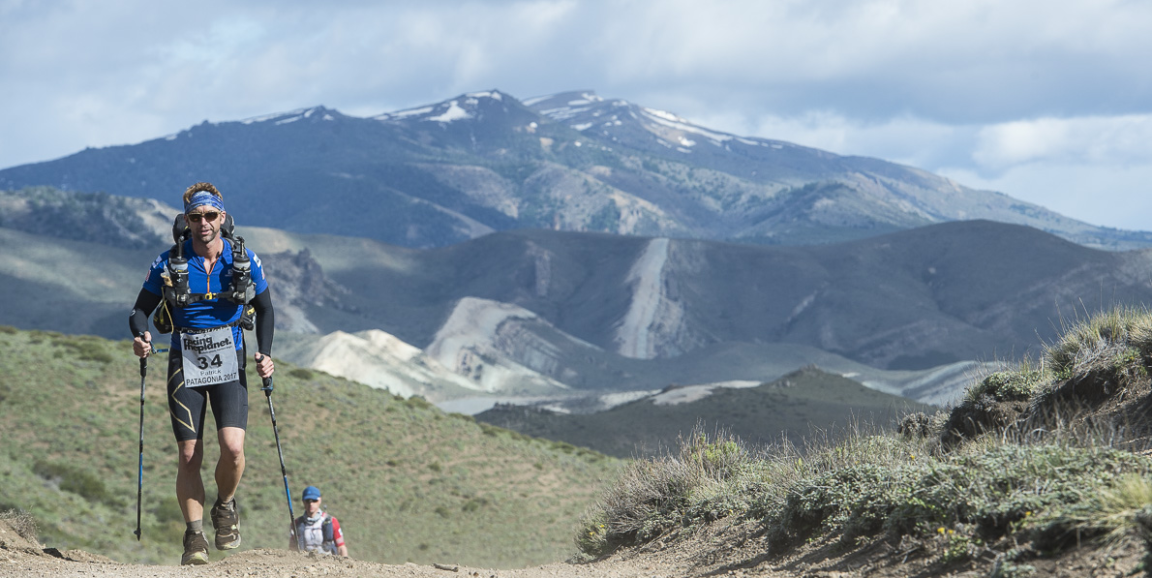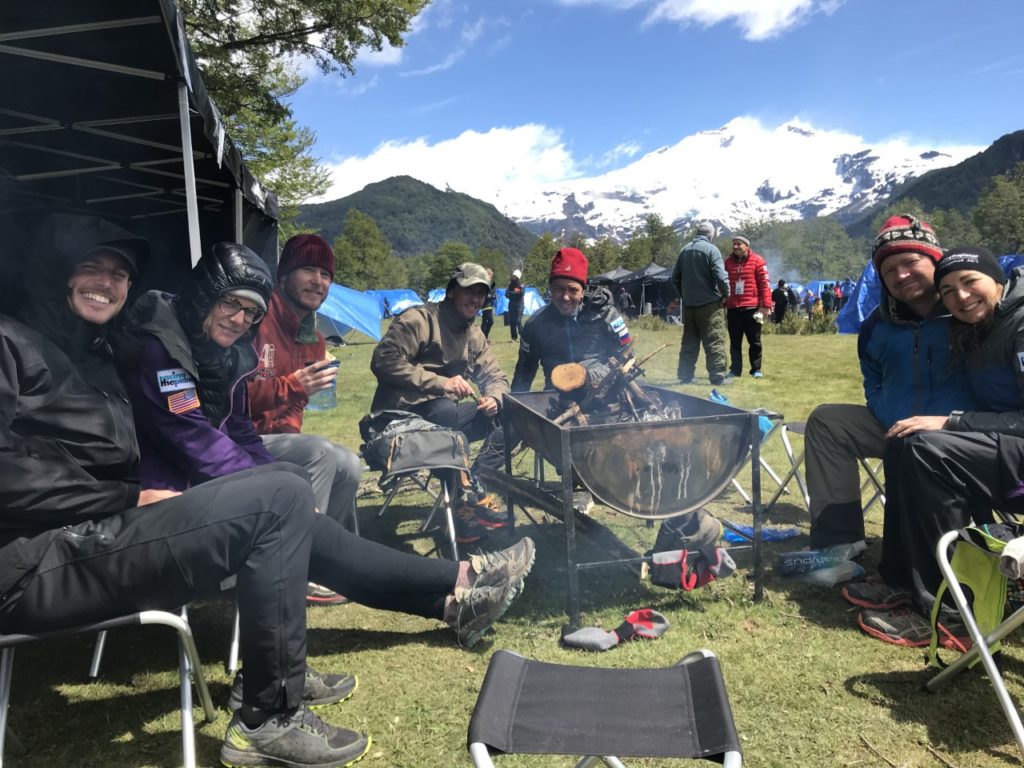At 8 a.m., after running four consecutive marathons, one on each of the three previous days, Stanford emergency medicine physician Patrick Burns, MD, and his fellow ultramarathoners, once again strapped on their backpacks and took off for the longest stretch of a 155-mile weeklong race in the Patagonia region of Chile -- a 50-mile run.
Burns, like the other racers, ran with with a backpack that he kept as light as possible, carrying only a minimal amount of food and clothing. But it had enough room for electrolyte tablets that he would drop into every other water bottle that he drank along the trail. Now, though, he's not sure exactly how helpful those supplements really are for athletes.
Burns not only completed the 50-mile stretch in 12-hours that day in 2017 -- finishing at dusk before the really cold weather arrived -- but he was also a participant in a Stanford study.
The results of the study, published recently in the Clinical Journal of Sport Medicine, would show that electrolyte supplements can't be relied on to prevent illnesses due to sodium imbalances in athletes. Other factors such as training levels, lower body mass and avoidance of overhydration proved more important.
In a release I wrote, lead author Stanford emergency medicine physician Grant Lipman, MD, who directs the Stanford Wilderness Medicine program, discussed some of the misconceptions about these supplements, which come in powder and tablet form, and are extremely popular in the U.S.
Study results showed that they did not appear to protect athletes from illnesses caused by dangerous levels of either too high or too low salt imbalances, both of which are a concern for athletes, particularly those competing in hot weather:
"Electrolyte supplements are promoted as preventing nausea and cramping caused by low salt levels, but this is a false paradigm," Lipman said. "They've never been shown to prevent illness or even improve performance -- and if diluted with too much water can be dangerous."
Burns was one of 266 ultramarathoners recruited from RacingThePlanet's weeklong athletic events held around the world in extreme weather conditions to participate in the trial. Burns was an easy recruit since he also happened to be a co-author on the study.
"I was terrified," he said about competing in this weeklong event for the first time. "We ran on single-track trails through the woods, with thousand-foot climbs, across muddy river up to your waist. It was cold and overcast and raining. I was soaked. I was incredibly sore. My Achilles tendons were on fire. They hurt so much."
As it says in the Stanford Medicine release, the researchers collected data from these exhausted athletes both before and at the end of 50-mile race -- before allowing them to eat or drink:
Prior to the race, the participants had been asked what electrolyte supplements they planned to use, how often they planned to take them and what their drinking strategy was -- whether they planned to drink at regular intervals or just when they got thirsty. They reported their previous training programs and were weighed in.
At the finish line, before hydrating or resting, researchers once again weighed them and asked how closely they followed their plans for drinking and taking supplements. A blood sample was also taken to measure sodium levels.
Burns said he slept well the night before the 50-mile race in a tent on the ground while a storm raged around him. Obviously, he was pretty tired by then after nonstop running for three days.
"I had a couple of very big emotional breakdowns during the long stages of the race," Burns said. "Once somebody passed me on a very steep climb, and I just felt so defeated. It was during the middle of the days when I'd think, 'Why am I still doing this?"
Lipman, who has competed himself in other 50-mile races, said he still plans to take electrolytes not because he believes they will protect him from any illnesses but because they make water taste better. His advice for athletes is to listen to your body, stop drinking if you feel bloated or nauseous and drink to thirst, not at regularly scheduled intervals.
Burns also still plans to continue taking the supplements although he's not sure whether they are helpful. More research still needs to be done, he said. As for competing in multi-marathon endurance events, he said he is considering doing another one.
"It's a little crazy," said Burns, who also works as medical staff at RacingThePlanet events. "We are all adventure junkies I guess. It was such a great experience. I was able to run with my friends. The athletes are so great. Your emotions all just all over the place. Crossing the finish line was so cool. Everybody's so happy."
And the pizza and beer at the end of the race never tasted better.
Top photo of Patrick Burns in Patagonia by Zandy Mangold; Center photos by Patrick Burns






